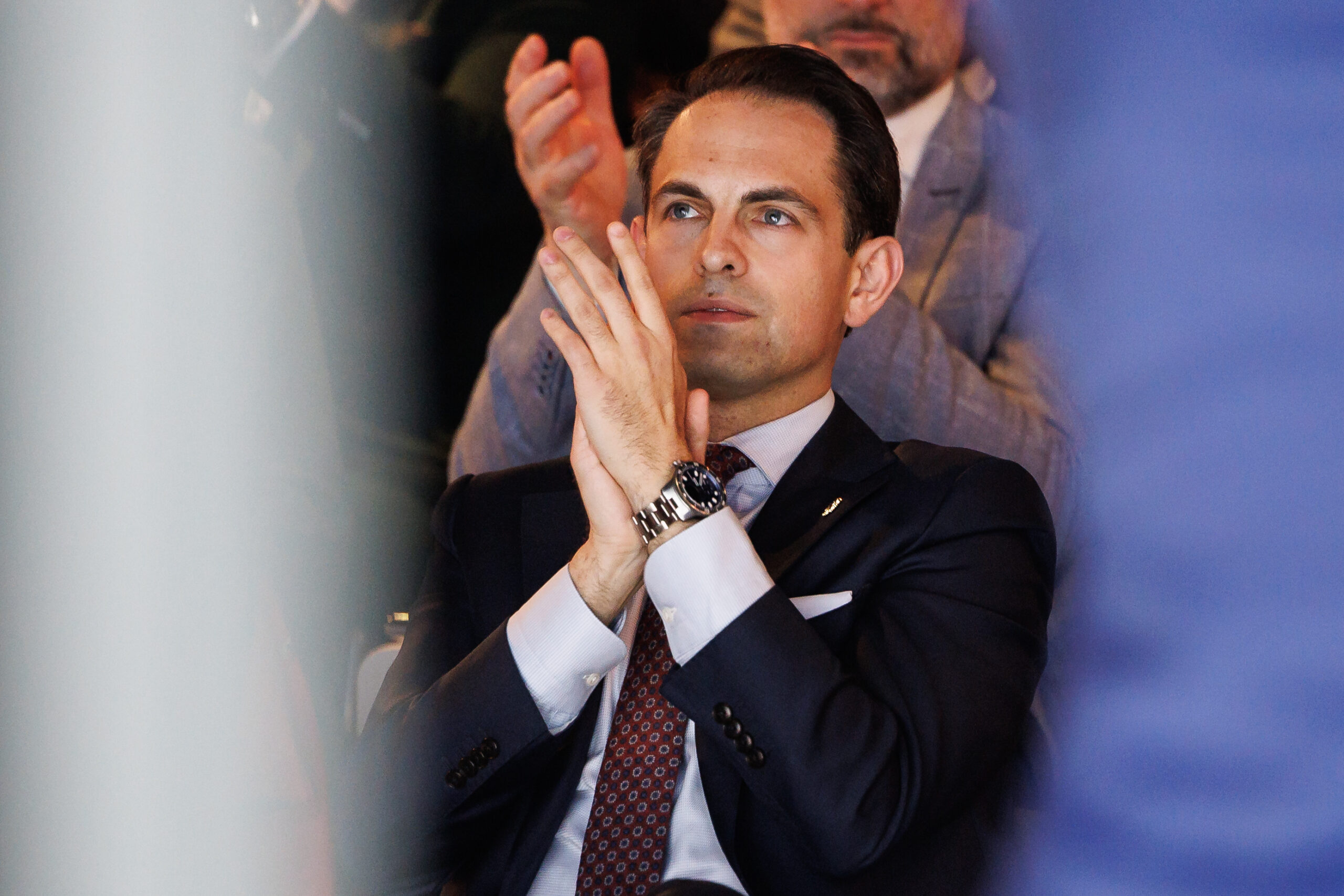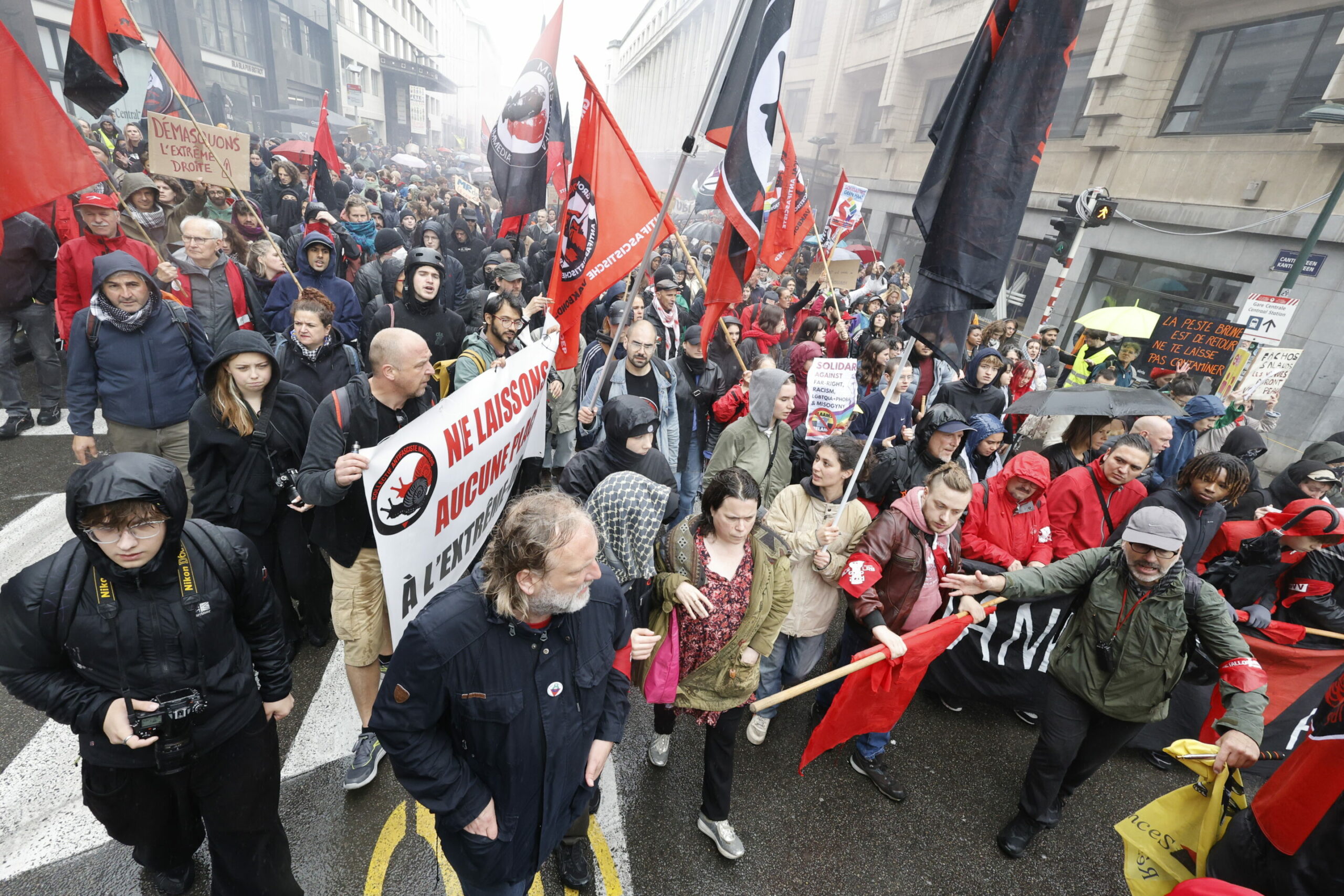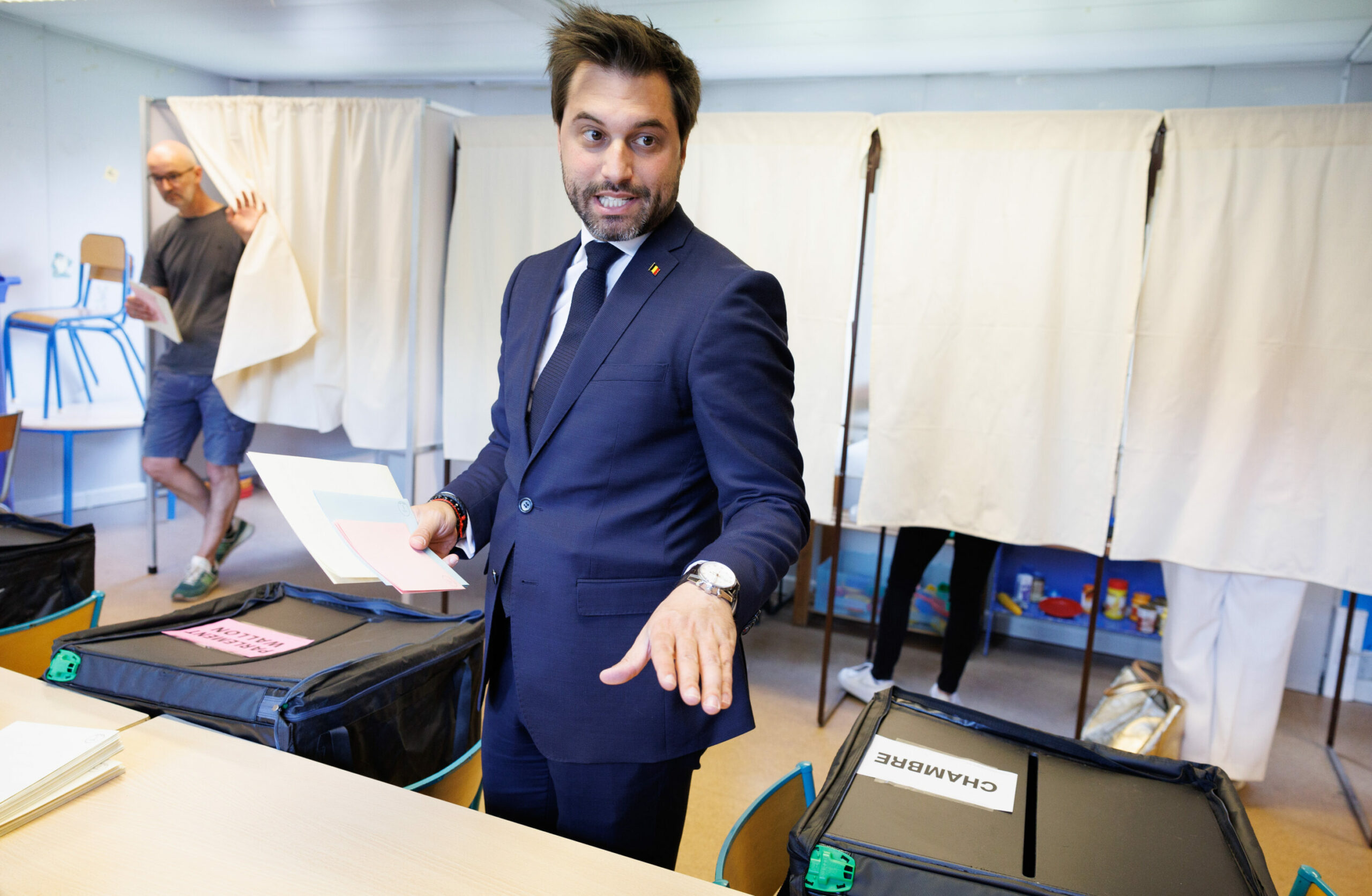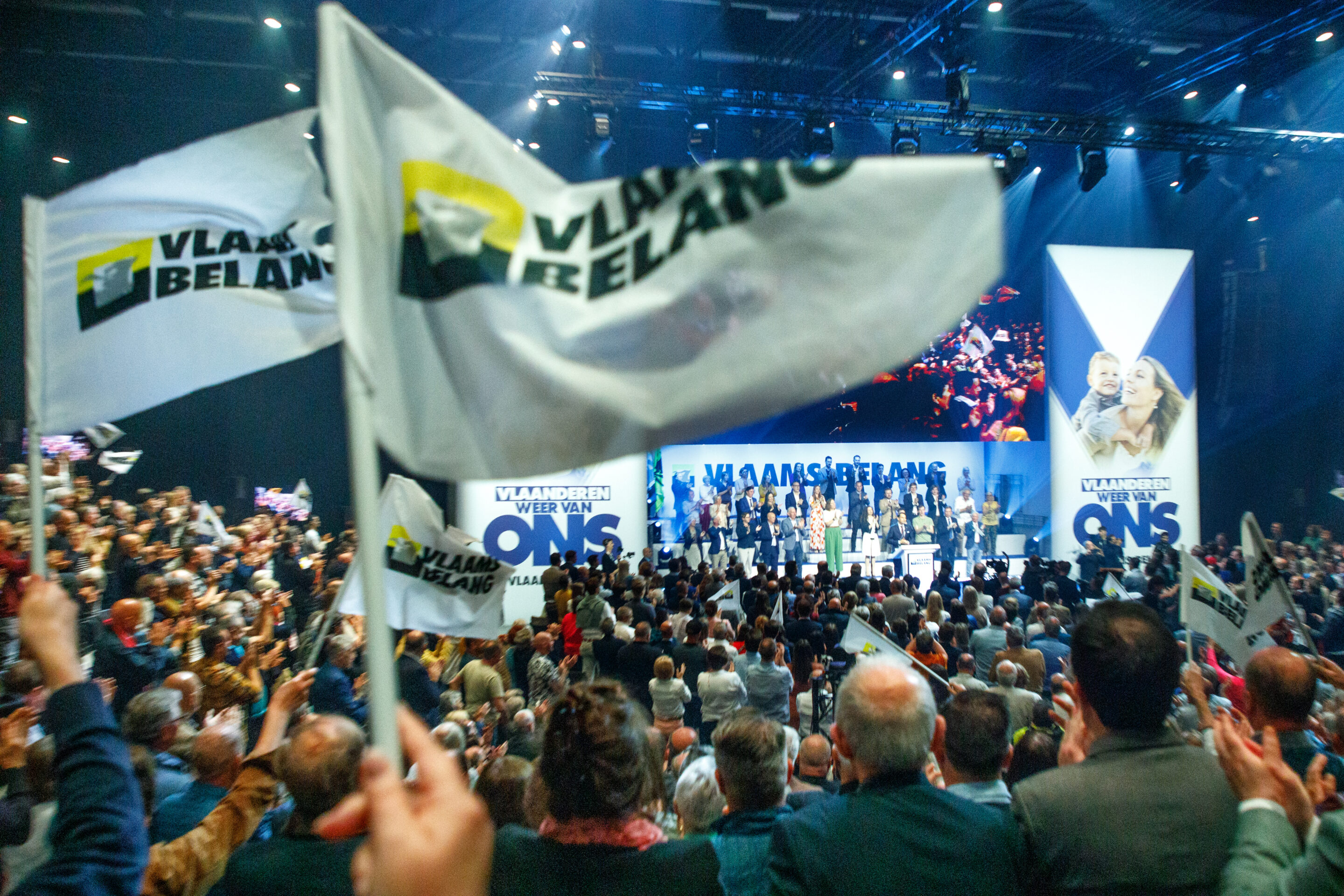Far-right Flemish party Vlaams Belang did not emerge as victorious as expected in elections last Sunday, but it performed exceptionally well in both federal (second place with 13.8% of votes) and regional counts (second again with 22.7% of votes). Despite the cordon sanitaire that will prevent Vlaams Belang from getting into government this time round, its surge in popularity will doubtless contain implications for the next legislative mandate.
The polls had predicted that the far-right would emerge as the largest party on the regional ballot on Sunday, but they ended up tailing behind right-wing separatists N-VA who managed to hold onto the top spot with 23.9% of the vote. The latter was also victorious in federal elections with 16.7%. Over in French-speaking Wallonia, liberal party Mouvement Réformateur (MR) put a definitive end to the region's left-wing predominance, taking 29.6% of the vote and earning a key position federally with 10.3%.
So Belgium finds itself with a markedly more right-wing political landscape, no matter the government formations eventually landed upon. A cordon sanitaire has existed around Vlaams Belang since the 1980s (when it was known as Vlaams Blok before being convicted), with every other political party agreeing never to govern with the far-right. There were concerns that N-VA would give in to temptation, but even if they did, the two parties would be one seat shy of achieving a majority.
The cordon sanitaire holds for now but Belgium's lurch to the right signals that Vlaams Belang has had an undeniable impact on the country's political discourse, with more moderate parties hardening their stances on key issues such as migration in order to seduce would-be extremist voters.

Far-right Vlaams Belang leader Tom Van Grieken. Credit: Belga / Kurt Desplenter
'Not fascist, just angry'
A portion of the Belgian population has been sounding the alarm about the complicity of neoliberal parties in the rise of extremes for years. The Antifascist Movement argues that "antisocial" policies implemented by the centre-right have progressively eroded living conditions for working classes and pushed them towards hateful ideologies.
The movement has intensified its mobilisation efforts since the votes that shook the country last Sunday. Between one and three thousand (organisers say 3,000, police say 1,000) turned up to an anti-fascism protest at Place de Brouckère last Tuesday evening, and between five and ten thousand were present for another march on Sunday. Rain cascaded upon the demonstrators that featured a solemn-faced crowd of "comrades" amid shouts of No Pasarán! – the now-defunct Spanish Republic's rallying cry as Franco's forces marched across Spain in 1936.

A march against fascism and right-wing political parties is organized on Sunday 16 June 2024 in Brussels. Credit: Belga / Nicolas Maeterlinck
Manuel Abramowicz is a professor and editor at the online magazine Résistances. He thinks the rise of the far-right is intrinsically linked to a lack of education about extremist politics rather than an endorsement of "fascist" ideologies. Indeed, Vlaams Belang has strong affiliations with Nazism – MEP Tom Vandendrieesche has repeatedly used Nazi terminology in the European Parliament and has donned neo-Nazi symbols multiple times. Other members have similarly concerning links to fascist ideologies.
"I have been teaching for 15 years, and I have noticed that year after year, the level of knowledge about how the political world works has dropped considerably. Most students cannot tell between a left-wing and a right-wing policy." He says that Belgium's compulsory voting system makes education all the more vital. "The far-right is gaining on the back of a widespread lack of knowledge about what the far-right really is."
But Vlaams Belang voters are also most likely voting for the party out of anger rather than supporting these ideas. "People sometimes vote for the far-right for just one reason. They don't vote for everything else, which is a far-right programme." And although the party's surge in popularity is a deeply concerning one, 80% of Flanders did not vote for the far-right, an important takeaway of the election, according to Abramowicz.
In terms of moderate parties getting tougher in order to attract would-be extremist voters, Abramowicz voices concern about MR's "antisocial" programme. He worries that the liberal party will focus on restricting trade unions and social insurance funds. "Without trade unions, a country cannot be a democracy. So it is clear that there is a great danger."
MR party leader Georges-Louis Bouchez referred to trade unions as "mafias" in the past and submitted two complaints against health insurance fund Solidaris ahead of the elections, accusing the organisation of campaigning for the Socialist Party (PS). On Monday, he expressed hope that Walloon trade unions would be "agents of change and not obstacles" regarding state reforms he envisions for the region.

Georges-Louis Bouchez (MR) casts his vote at a polling station in Mons. Credit: Belga / Benoit Doppagne
Democratic erosion has already begun
The Belgian League of Human Rights (LDH) also believes there are worrying trends at play in moderate parties, but the organisation's primary concern is the erosion of the rule of law.
"Belgium was condemned in July 2023 for something very serious, namely a structural violation of the rule of law," LDH president Sibylle Gioe told The Brussels Times.
There are thousands of rulings from the Belgian Constitutional Court and the European Court of Human Rights stating that Belgium has violated international law by failing to welcome international protection applicants. The state has done nothing to address these rulings.
"LDH is very concerned to see that this was not at all a major issue in the campaign," said Gioe, who warns that the erosion of the rule of law – no matter who it directly affects, in this case asylum seekers – does not bode well for democracy in general. "Human rights, the rule of law and democracy are interdependent. You can't have one without the other two."

